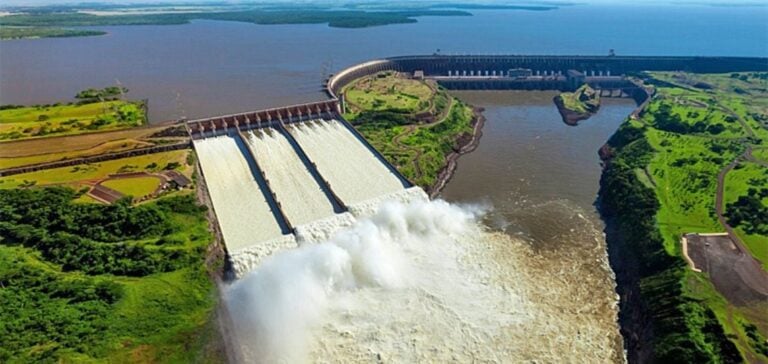Paraguay is a key player in the global energy sector, thanks to its abundant and inexpensive hydroelectricity.
The Itaipú dam, one of the world’s largest hydroelectric infrastructures, produces 14,000 megawatts, much of which is exported, with the country consuming less than 25%.
This situation attracts many players in the technology sector, particularly for cryptomining activities, a particularly energy-intensive industry.
For the past three years, cryptocurrency companies, with the approval of the authorities, have been setting up near hydroelectric infrastructures, taking advantage of the cheap energy to power their servers.
This attractiveness is fueled by an initially favorable legislative framework and low operational costs.
However, the influx of cryptocurrency-related investment highlights the management and governance challenges facing the country.
The low cost of electricity has enabled local and international companies to establish data centers and mining farms, but it has also paved the way for less scrupulous practices.
Expansion of illegal cryptomining practices
At the same time, illegal cryptocurrency networks are proliferating, exploiting loopholes in the surveillance system.
These unregulated operations cause considerable financial losses and affect the image of Paraguay’s energy sector.
According to the National Electricity Administration (ANDE), around 28% of electricity production is lost every year, partly due to these fraudulent practices.
This situation creates a paradox: although Paraguay massively exports its electricity, many local communities still suffer frequent blackouts.
Recent seizures of illegal cryptomining equipment, such as the 2,700 computers confiscated in Saltos de Guaira, highlight the scale of the phenomenon.
Paraguayan authorities have stepped up their efforts to curb this scourge, but face structural challenges.
Corruption at various levels complicates the fight against these illegal farms.
Opposition deputy Salyn Buzarkis criticizes the ineffectiveness of current measures, claiming that some illegal actors benefit from protection in exchange for bribes.
Economic consequences and risk of investor flight
The economic consequences of this situation are already being felt.
Legal cryptocurrency companies, which have invested heavily in the country, are beginning to express concerns about legal stability and recent tariff increases.
The 16% increase in tariffs for large-scale energy consumption, implemented by ANDE, is seen as a wake-up call by several operators.
Energy and technology companies are now looking for more predictable alternatives in the region, particularly in Brazil, where regulatory frameworks are deemed more stable.
Paraguay’s reputation as an attractive energy hub is being undermined by these developments.
Industry players are waiting for concrete reforms to restore investor confidence.
Without stronger measures against illegal activities and better management of energy resources, Paraguay risks losing its privileged position in this field.






















